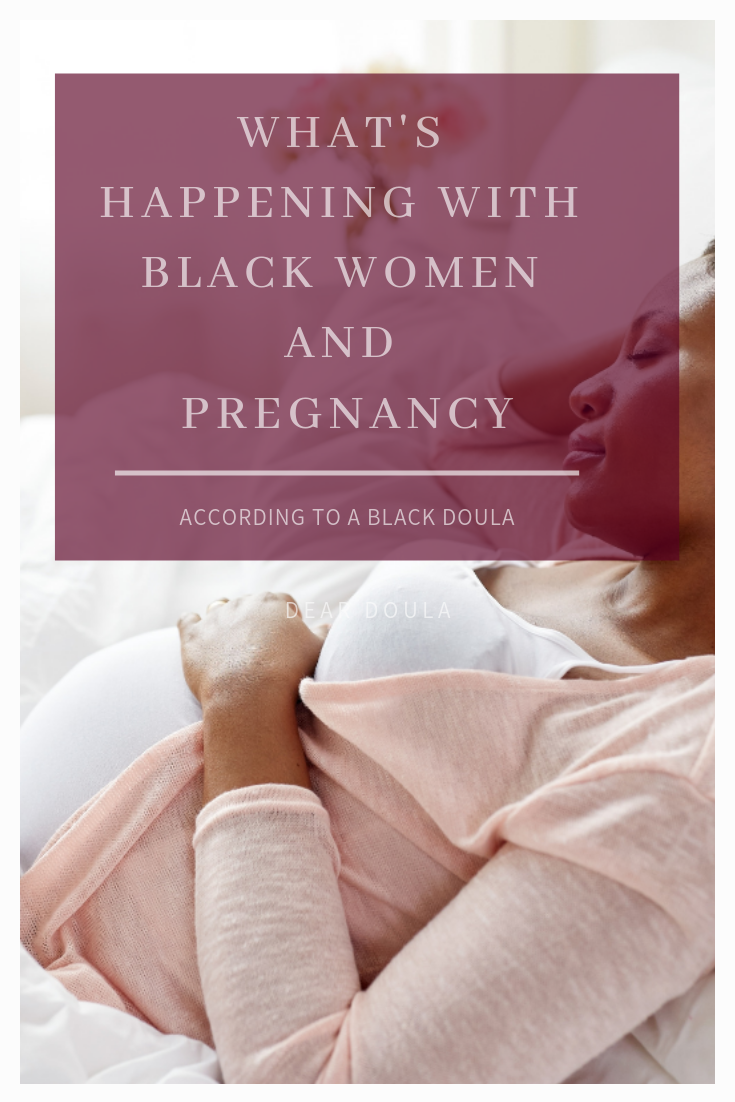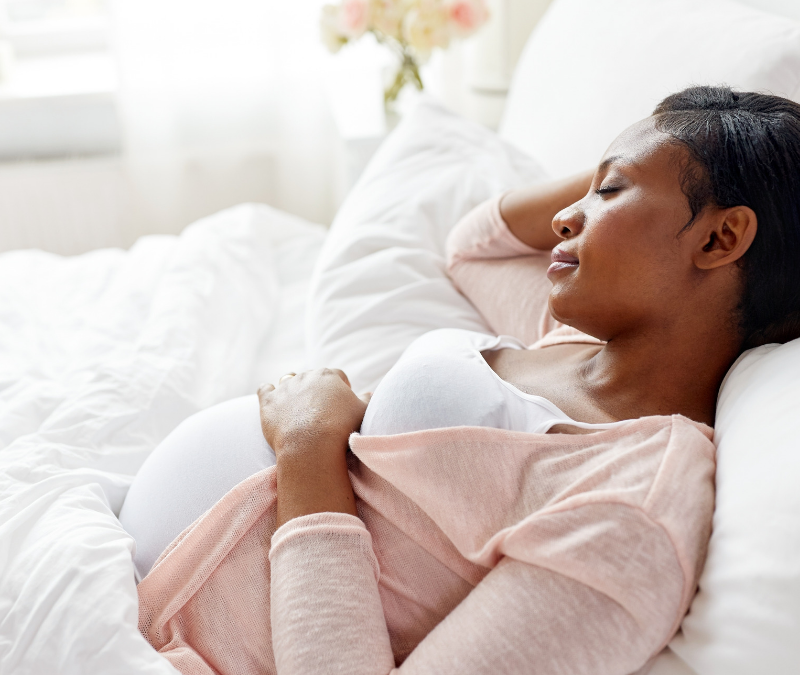For better or worse, many of our black doula clients first find out about doulas when they’re trying to feel safer while giving birth, after hearing about maternal and infant mortality rates for black mothers.
And the most important thing I want to say (beyond the fact that most families do, thankfully, make it out of birth alive and well) is that the higher risks are not black women’s fault.
If you are a black woman in DC, MD or Northern Virginia, please don’t blame yourself for any worries you have about your pregnancy.
Instead, let’s talk through two truths that a couple of ways evidence shows racism impacts black women while we’re pregnant:
-
Experiencing racism throughout our lives impacts wears on our bodies.
-
Racism is a part of our healthcare system, and impacts the treatment that we receive.
Number one is a hard truth. Most of our clients, of all races, are accomplished and in control of their lives. They aren’t in the habit of letting anything hold them back. Many of us would prefer to think that our own diet and exercise habits determine how healthy we are when it’s time to have a baby.
But think of the last time something racist impacted you- maybe at work, in school, or something in the news.
Don’t think about what you did to overcome it or get past it. Instead, remember how that racism made you feel. Were you stressed, angry or sad? Hurt or frustrated?
Now, think of what happened to your body while dealing with racism. Were you hot and flushed? Did you have a knot in your belly or tension in your shoulders? Perhaps you had a headache, or cried.
As a black woman, you’ve likely dealt with racism your whole life. And each time, you’ll have a reaction, and your body feels it. That adds up. (This isn’t even addressing any other kind of discrimination you’ve possibly faced.)
There are theories that if we are in constant stress, then our body is always experiencing that stress response. We have extra cortisol (a stress hormone) flowing, and our body is always in fight or flight mode. We believe that we are under attack. This shuts down other systems that we need to function, and be healthy. Naturally, researchers in public health have found links between racism and worse health.
If we consider that the health of a woman prior to pregnancy, and the stress she experiences during her pregnancy, it only makes sense that a group experiencing more discrimination- like black mothers- would have worse health. And this would explain why even if a black woman is doing everything “right” she’s at risk for a tough pregnancy, statistically.
On top of this, we have to deal with the fact that after experiencing this racism, black pregnant women go into a healthcare system that has its own issues with treating us.
I want to affirm that I believe doctors, midwives and nurses are generally well-meaning. Most people don’t go into medicine to hurt women. But we all have biases, and we’re all exposed to stereotypes. Additionally, modern gynecology has a pretty dark origin story. As wonderful as medical providers are, healthcare professionals aren’t immune to their surroundings.
Studies have shown that women aren’t believed as much as men when we talk about their pain and health concerns. We’re dismissed when we need help.
Add to that, black patients are treated worse compared to their white counterparts. We aren’t offered the latest therapies, and it is often assumed we won’t take care of ourselves.

So in a healthcare system full of racial and gender bias, what happens to black women during childbirth?
Well, many of us end up experiencing discrimination. And discrimination contributes to instances of black women and babies being in danger.
All of this creates a pretty bleak situation:
Our black pregnant clients are often at higher risk for things like high blood pressure, gestational diabetes, lower birth weight and other health issues that are associated with chronic stress, even when their lives are good.
Then, in seeking out care they may be less likely to be trusted when discussing their symptoms, have less access to the best treatment, and not be acknowledged as the brilliant and capable adults that they are in labor, despite being incredibly well educated.
It almost makes me wish that just sending everyone to prenatal yoga, telling them to eat veggies and giving them a doula would solve all of black mothers’ problems .
But don’t worry. Despite the US needing a system overhaul, there ARE things that can be done. You do have some control.
And we all know that black mothers are much more than victims.
Here are five things you can do as a Black mother, right now:
- Talk to your provider openly and honestly about racism. The conversation may be uncomfortable, but you’re depending on them to keep you safe.
- Build a support system that you can discuss your concerns with. A doula or a mom group may have referrals for you and can talk to you about doctors, midwives and hospitals.
- Be in charge of your health and your birth plan. Take notes at your appointments, and ask questions.
- Find ways to manage the impact of stress on your body. Therapists, chiropractors and acupuncturists can all be helpful.
Should you have to do any of this? No. But, we know that you can.


